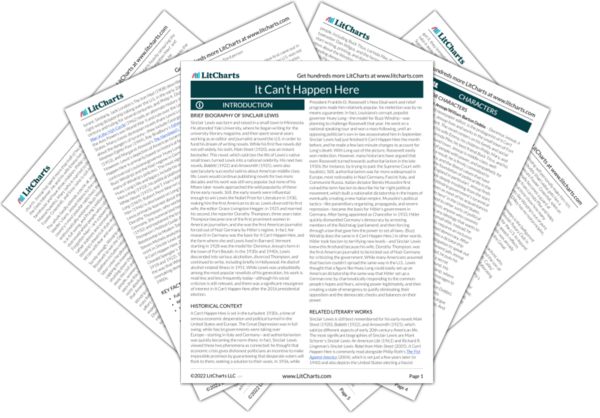This conversation suggests that Windrip makes arbitrary, emotional decisions on the spur of the moment, while Sarason is trying to fulfill a grand, secret scheme. Lewis jokes about Sarason’s sexuality (insinuating that he’s gay) in order to mock the popular conspiracy theory that fascists (particularly Nazis) were really gay men who wanted to build a militaristic society around their strict ideals of masculinity. Instead, Lewis traces fascism to the combination of desperation, populist politics, and technological change in the interwar period—not an obscure gay conspiracy. Of course, the reality is more jarring than the conspiracy because it implies that fascism really
can happen anywhere, and that ordinary people really can participate in it.
